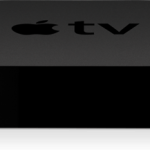 I noticed it a while back when I used to lurk on the Popbitch board in order to see human interaction taking place (it was a bit quiet in our office and Twitter was years away). Punctuation marks I’d not seen used before started appearing in people’s conversations, highlighting the moments when words changed from prose to quasi stage directions (*applauds*).
I noticed it a while back when I used to lurk on the Popbitch board in order to see human interaction taking place (it was a bit quiet in our office and Twitter was years away). Punctuation marks I’d not seen used before started appearing in people’s conversations, highlighting the moments when words changed from prose to quasi stage directions (*applauds*).
It’s almost as though, in order to communicate effectively in an environment where clarity of speech is pretty vital (unless you’re a troll), we’ve taken to exploring the outer reaches of our keyboards for redundant keys that can be put to use elsewhere. After all, not everyone wants to succumb to the constant lure of the emoticon 🙁
But I think with this change in punctuation comes a new and useful means of expression. The english language has always been adapted to keep it fit for purpose, and I wouldn’t be surprised if we started to see at least a few of the punctuation marks listed below appearing in the mainstream press in the coming years.
* Asterisks: Used in two ways. 1. Popbitch-style stage directions eg. *whispers*; *kills self*
2. Faux American teen emphasis on words eg. That’s *so* not the point; you *totally* missed out. Often used where italics would normally be used, but somehow *much* more expressive.
<> HTML tags. The greater than, less than signs can also be used to show stage directions like asterisks, , but I use them after a retweet on Twitter to add my own insightful commentary or opinion. Eg. RT @darika: check out these hilarious kittens > LOLS!! Other variations include >>, => and ~.
# Hash. Twitter regulars are already well-versed in the use of the hashtag to help file and categorise popular topics on Twitter. (By the way, in America, they sometimes call it the pound sign, which is confusing).
[] Square brackets. For some reason these don’t seem to have been used for stage directions. It’s like we all think Shakespeare’s not good enough. Instead, we use them to show that people should insert some hackneyed phrase or a survey-style sentence. Eg. At this point I would just like to say [insert lengthy rant]. Not exactly a new usage, but something that seems to have been taken up with [insert term of affection of choice] by the blogging community.
/ Forward slash. Thanks to its use in HTML coding, you’ll see this used when people want to express that they have finished something eg /rant. Also handy as a means of expressing what tone your piece should be read in eg /sarcasm. No one puts the <> tags round the words for fear of bringing down the whole internet with some invalid HTML.
So that’s my list of new punctuation. Let me know if there is anything I’ve missed off.
Related:






 Panning for Internet Gold: The ‘Hug a POTUS’ edition
Panning for Internet Gold: The ‘Hug a POTUS’ edition Watch Doctor Who on Facebook! The Future Is Now!
Watch Doctor Who on Facebook! The Future Is Now! Why I no longer watch TV
Why I no longer watch TV Panning for internet gold: The ‘animals got swag’ edition
Panning for internet gold: The ‘animals got swag’ edition RSS
RSS
There’s also _this_ which I’ve never really got. Maybe it’s an IRC thing, or jut syntax error?
Being old enough and geeky enough to have been on the Internet back in the days of bulletin boards and newsgroups, I can say that the *, / and _ was originally done to show *bold* /italic/ and _underline_ .. beats SHOUTING I suppose.
I think I prefer the odd bit of uppercase to _this_ though. The times when people have sent me emails using that (yes, it has happened) I’ve immediately filed them in the folder marked “nobber”.
I really really really hope you do have an email folder marked ‘nobber’. I’ve just consigned myself to it if it exists, haven’t I?
Endless use of ellipses. People on the Internet can’t be arsed ever finishing a thought properly, it seems…
I am amazed by how many bloggers use ellipses in articles. And popular bloggers too! I can’t read them… they just make you seem vague and a bit… mentally absent.
PS. I was joking about Popbitch. I never spent any time on there AT ALL when you were my editor. Honest.
PPS. In case anyone calls me out on it, I have been using ellipses in DA articles that appear in the featured tab on the homepage. For reasons too dull to go into…
Nice summary – I’ve not seen the * used instead of italics but that’ll come in usefull on twitter! Also just wanted to add <-- to your RT commentary - I use that a lot. For me, ellipsis (which I had to look up but have now realised I use a fair bit) is great for missing less relevant bits out of lengthy quotations...and for adding afterthoughts!
That’s what they’re for, so you obviously knew how to use them even if you didn’t know what they were called!
Katie, I had no idea you had an issue with ellipses… I use them *a lot*, I realise now…
I’d add the use of “@” instead of “at” outside of Twitter – because sometimes two letters is one too many.
Kind of holding out for ¬ to start meaning something, too. Can we come up with something?
I don’t mind ellipses if they’re used right. The thing that bothers me is the weird blog posts you get that are written almost in note form, strung together with dots. Usually, these also appear on blogs where people write song lyrics randomly in the middle of a post and change their formatting to “centre”.
The @ thing is weird because it takes as long to type and to write. And I too am holding out for the day when we can use the ¬ key. It’s going to be a big moment for me.
How are you guys making your keyboard do that?
Hang on.
_-}[~/<
Okay, have you people got some secret web geek key not available to humble charity workers?
Either way, it looks like it's designed to communicate that stage of Hangman when you've got two letters wrong, if you're one of those freaks who doesn't draw the vertical line first.
I use ellipses a *lot*…
But one thing I think you’ve missed – is the hyphen, or dash seems to have replaced the semi colon and the colon – and in some cases – though not all – fullstops and commas!
Now can someone please explain to me in simple terms please, what is supposed to be difference in meaning between a dash (-), an em-dash and an en-dash?
PS – I use the to go with the / as you can see above, and I haven’t broken the internet yet, but there’s still time I suppose! http://www.savetheinternet.com – but that’s a different story…
My last reply: “PS – I use the to go with the / as you can see above” would have made more sense if the Less Than and Greater Than signs hadn’t been stripped out by the messageboard. Oh-well!
I can see why though
LESS THAN Format C: Drive GREATER THAN
🙂
PS – I know…
¬ means something if you’ve studied symbolic logic. It means “not”.